Inquivix HQ
1-903, 18 Eonju-ro 146-gil,
Gangnam-gu, Seoul, Korea
06057
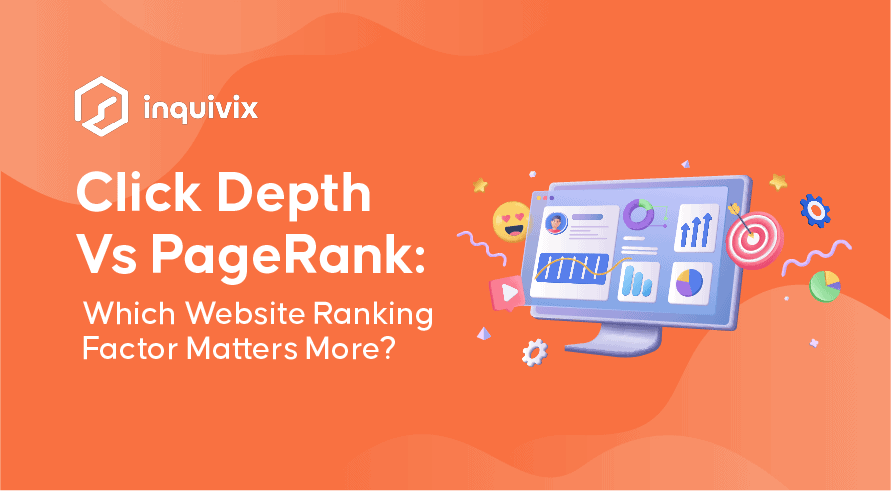
Do you ever wonder what influences the position of your website when people search for related topics? Have you tried to increase your website’s ranking without much success? Understanding two important online ranking factors, click depth and PageRank, can help you understand why certain websites appear on the top results of a search engine and how to get your own site moving up in rankings. In this blog post, we will explain what click depth and PageRank are, provide guidance about determining which one is better for optimizing your own website and reveal tips for improving both. Read on if you want to learn more!
Table of Contents
What Is Click Depth?
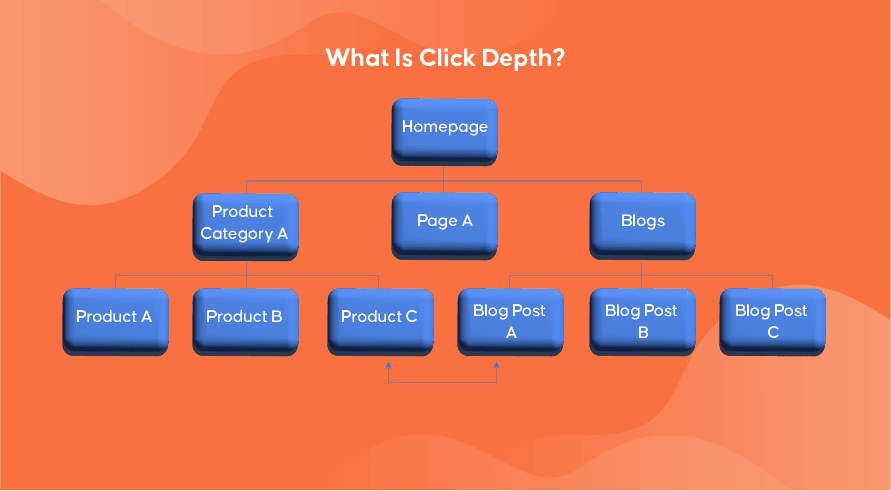
Click depth also known as “page depth” is a measure of the number of clicks required to reach a certain page on your website. Generally speaking, search engines like Google prefer websites with shallow click depths—in other words, they prefer websites where the important pages are easy to find. The deeper you have to go into your website’s navigation hierarchy to reach a certain page, the less likely that page is to be indexed by search engine crawlers. Such deep pages can significantly reduce the site’s visibility on search engine results pages, which can in turn negatively affect search engine rankings.
What Is PageRank?
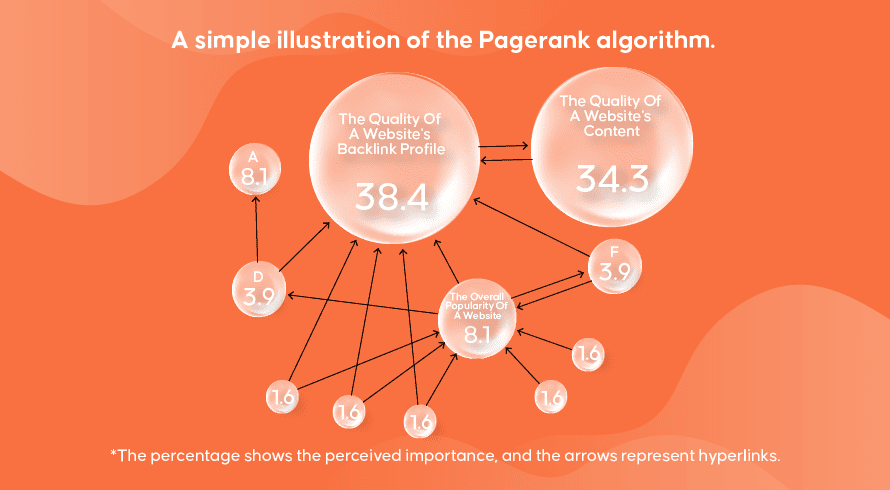
PageRank is one of many factors that Google looks at when ranking websites. It assigns a numerical “weight” to each webpage based on a number of factors, including things like the number and quality of links pointing to that page from other websites.
Google’s PageRank algorithm is constantly evolving, but we do know that it takes a variety of factors into consideration when determining where a website should appear in search results. Some of those factors include:
The Quality Of A Website’s Backlink Profile
Backlinks are links from other websites that point to your website. The more high-quality backlinks you have pointing to your site, the better. In Google’s eyes, these links act as a vote of confidence—if other websites are vouching for your site, then there is a good chance that your page is valuable!
The Quality Of A Website’s Content
Google wants to provide searchers with the best possible results, which means they’re looking for websites that offer high-quality, relevant content. If your website’s content is thin or outdated, it could hurt your search rankings. It is important to optimize these on-page SEO factors to rank higher.
The Overall Popularity Of A Website
All things being equal, a website that gets more traffic is going to rank higher than a website that gets less traffic. This is because popular websites are generally seen as being more valuable and useful than less popular ones.
Google’s founders Larry Page and Sergey Brin came up with this idea while they were students at Stanford University in the late 1990s. They realized that by using links as a way to measure quality, they could create an algorithm—PageRank—that would allow them to rank websites more accurately than any other search engine on the market at that time. The above factors contribute to evaluating the PageRank of a site.
What Is The Difference Between Click Depth And PageRank?
Both click depth and PageRank most definitely contribute to your site’s performance, but how are they different? Below, we have outlined the differences between these two factors.
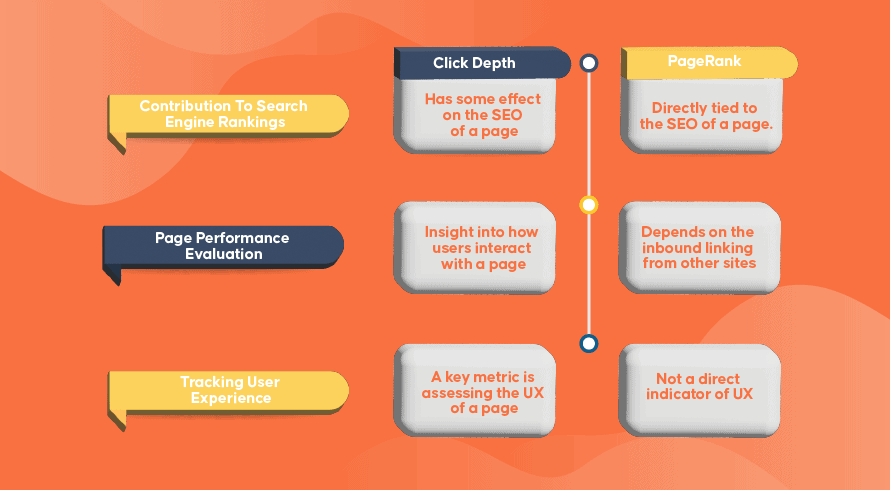
Contribution To Search Engine Rankings
Google and other search engines use an algorithm that takes into account various factors when ranking websites. One of these factors is ‘click depth’—the fewer clicks it takes for visitors to get from the homepage to any given page on your website, the higher that page will rank in Google’s search results. How many pages a user has to pass through reflects click depth. If a user has to click more than three times before they reach what they’re looking for, chances are they won’t bother trying—and neither will Google’s crawlers.
With PageRank, if lots of other websites are linking to a given page, that’s a good sign that the page is high-quality and relevant to users’ queries. Conversely, if there are very few links pointing to a given page, that’s usually an indication that the page does not provide users with what they are looking for.
When it comes to SEO, PageRank is generally considered to be a more important metric than click depth. This is because PageRank is directly tied to a webpage’s visibility in search results, and higher visibility can lead to more traffic and ultimately more conversions. However, click depth can also play a role in SEO, as a deep navigation structure can make it difficult for search engines to crawl and index a website’s content.
Page Performance Evaluation
Click depth also provides insight into how well a website is performing in terms of user engagement. A website with a low click depth may indicate that users are quickly finding what they are looking for and leaving the website, while a website with a high click depth may indicate that users are having trouble finding what they are looking for and are becoming frustrated.
On the other hand, PageRank is based on external factors such as how many links point toward a webpage along with the quality of the link. A webpage with a high PageRank may indicate that it is considered valuable and important by other websites and users.
Tracking User Experience
When it comes to user experience, click depth is considered to be a more important metric than PageRank. This is because a low click depth can make it easier for users to find the information they are looking for, and a website structure with too many pages can make it more difficult for users to access important content. However, PageRank can also play a role in user experience, as a high PageRank can indicate that a webpage is relevant and useful to users.
Click depth focuses on the user’s experience on the website, whereas PageRank focuses on the external factors that contribute to a webpage’s importance and relevance. A website with a low click depth and a high PageRank is likely to provide a better user experience than a website with a high click depth and a low PageRank.
Should You Focus On Click Depth Or PageRank More?
The answer depends largely on what kind of content you are producing and what kind of results you want to achieve with SEO. If your goal is simply to increase organic traffic, then focusing on improving click depth can be beneficial since it will allow visitors to navigate through multiple pages on your website intentionally – thus improving user experience as well as the time spent on-site and engagement with content.
On the other hand, if you’re looking for improved visibility in search engine results pages (SERPs) then focusing on improving PageRank may be more beneficial as this will result in higher rankings for targeted keywords or phrases that are related to what people are searching for online. Either way, both click depth, and PageRank should be taken into consideration when developing an effective SEO strategy for any website!
How Can You Improve Click Depth And PageRank?
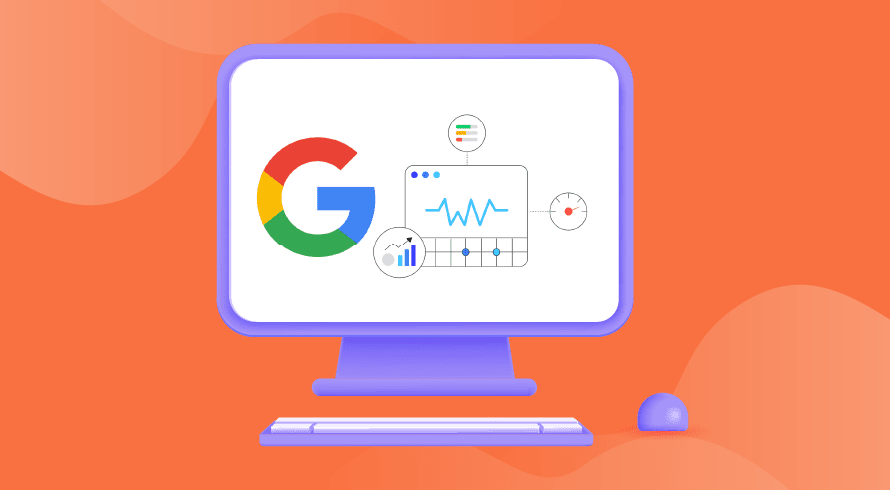
As both ranking factors are extremely valuable, here are tips on how you can reduce click depth and increase PageRank.
How To Improve Click Depth
Improving your website’s click depth can dramatically improve its visibility in search engine rankings, so you must take steps to optimize its navigability and make sure pages are easy to find by users. Some techniques include restructuring navigation menus, adding breadcrumbs, improving internal linking structure, and ensuring all pages are accessible by text-based links rather than images or buttons only. Additionally, using a descriptive and SEO-friendly URL instead of a generic URL structure and optimizing meta titles and descriptions can also help boost visibility and usability on search engine pages.
How To Improve PageRank
There are several different steps you can take to improve your PageRank. The most important thing you can do is to ensure that all of the content on your website—from blog posts to product descriptions—is well-written and relevant to your target audience. Additionally, make sure that any external links from other websites point directly to relevant pages on your own site; this will help increase both traffic and authority for those pages. Finally, link top-performing pages pointing back to yours; this helps search engines understand that other reputable sources are vouching for your content, thus improving its credibility in their eyes.
Rank Your Web Pages With Inquivix SEO Services
Ultimately it depends on what kind of outcome you want from SEO efforts – whether increased visibility or improved user experience – but ideally both should be taken into consideration when devising an SEO strategy since they both play an important role in driving traffic and conversions online These two metrics should not be viewed as mutually exclusive; rather they should complement one another as part of an overall SEO strategy focused around providing users with quality content while optimizing visibility online so potential customers can find what they are looking for quickly and easily.
If you want to ensure your SEO efforts are successful, reach out to us. Let us help you improve all your website ranking factors with our expertise!
FAQs
The relationship between click depth and PageRank is critical to understanding Google’s ranking algorithm and optimizing website visibility. Click depth, also known as the page depth or the number of levels between a webpage and its homepage, offers insight into the hierarchy of a website. The more “clicks” away from the home page, the lower the PageRank of a page; shorter clicks mean higher-ranking pages. The algorithm evaluates the PageRank of all pages on a website and only assigns high rankings to those highest in PageRank. In essence, having deeper levels of navigation configured correctly can help ensure that each page on your site has optimal visibility and is ranked accurately by Google’s algorithm.
Google’s PageRank was once what made the tech giant stand out from the rest of the search engine landscape, but have they switched over to something new? As it turns out, though nowadays Google uses a variety of factors when returning search results and determining rankings, PageRank is still at the heart of their index algorithm. Google specifies that PageRank continues to “play an important role” in its ranking process, even if there are additional factors that are taken into account. Despite this, SEO experts and marketers agree that understanding and leveraging how the original PageRank algorithm works can still help website owners optimize their pages for better performance in search engine result pages.
